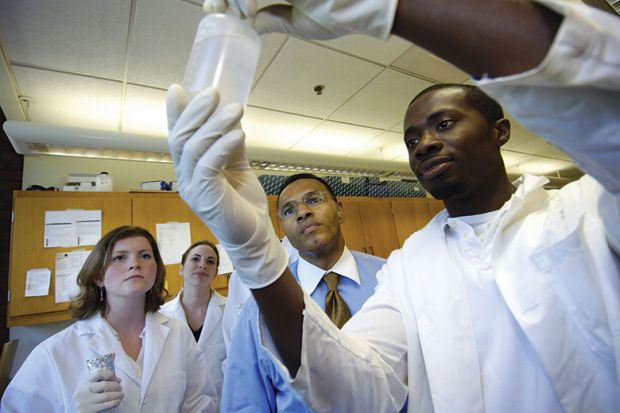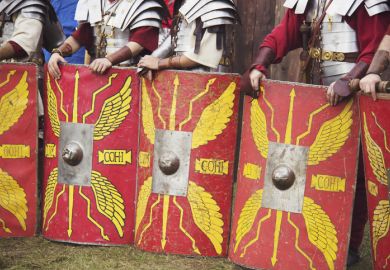University leaders come and go depending on a random mix of talent, timing and raw politics. Of these, talent may be the least important source of success. According to a survey by the American Council on Education, the average tenure of a university president in the US in 2016 was six and a half years, down from eight and a half years a decade before.
How remarkable, then, that an African American educational leader appointed president of a modest “‘commuter school’ in 1992” is still at the helm nearly 30 years later to tell the tale. And if the sheer weight of quotes on this book’s dust jacket is any indication – six leading US university presidents provide gushing references – the University of Maryland, Baltimore County (UMBC) is an undoubted success story. Much of this must surely be attributable to the inspirational leadership, administrative skill and emotional intelligence of Freeman A. Hrabowski III, the primary author of The Empowered University.
The story begins with a symbolic victory for the UMBC basketball team against one of the country’s top-ranked teams, the University of Virginia. It proceeds as a case study of a multiple award-winning institution that has raised the proportion of students who graduate within six years from 35 per cent to 65 per cent through a total focus on academics and the cultivation of a school spirit described as “grit and greatness”.
Today, UMBC is most renowned for its success with low-income and minority students in STEM subjects, equipping black and Latino students to achieve remarkable graduation rates. A number of them then go on to complete PhDs at some of the leading universities and medical schools in the US.
Hrabowski is a mathematician with a passion for data and “evidence-based practices” that have promoted pedagogical innovation at UMBC in a range of subjects, from the arts and humanities to engineering and science – for example, chemistry and biochemistry. He has a strong belief in targeted scholarship programmes, technology-enhanced learning, the promotion of entrepreneurial endeavour (with 70 courses redesigned) and community engagement through service learning.
The UMBC story includes moments of anxiety or “difficult conversations”, including challenges by students and female faculty on issues ranging from sexual harassment to faculty diversity and career advancement. Happily, most of these seem to have been resolved by the willingness of the main author (and autobiographical subject) to listen and reflect, “looking in the mirror”, before instituting reform.
Given the primary author’s grounding in patriotic and religious values, some readers will find the writing occasionally cloying: “In these divisive times, we are what America hopes to be.” Others may find the account somewhat self-serving, even verging on the hagiographic. There are numerous platitudes: “Success is never final” and “Higher education matters. It absolutely does.”
However, there can be no denying the achievements of Hrabowski and his administrative and academic colleagues, still less the outcomes for students he so clearly serves with passion and distinction. This book does not purport to represent a blueprint that can be easily replicated in other contexts; indeed, the authors note that very little progress has been made in the US with respect to the percentage of lower-income students achieving graduate status since the 1960s. But the book offers a beacon for what is possible in US higher education with the right combination of leadership talent, hard work and good governance.
David Wheeler, former vice-chancellor of Cape Breton University in Nova Scotia, is a co-founder of the Academy for Sustainable Innovation.
The Empowered University: Shared Leadership, Culture Change, and Academic Success
By Freeman A. Hrabowski III, with Philip J. Rous and Peter H. Henderson
Johns Hopkins University Press, 320pp, £26.00
ISBN 9781421432915
Published 7 January 2020
Register to continue
Why register?
- Registration is free and only takes a moment
- Once registered, you can read 3 articles a month
- Sign up for our newsletter
Subscribe
Or subscribe for unlimited access to:
- Unlimited access to news, views, insights & reviews
- Digital editions
- Digital access to THE’s university and college rankings analysis
Already registered or a current subscriber? Login








